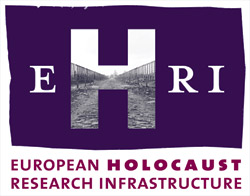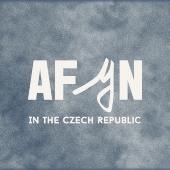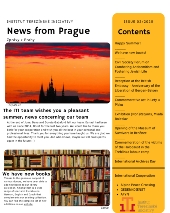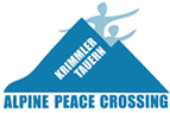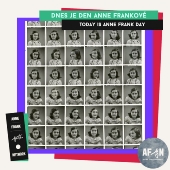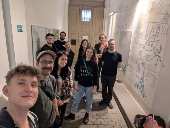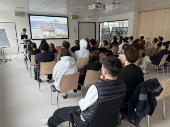EHRI – European Holocaust Research Infrastructure
EHRI Czech National Node
Top-quality research on the Holocaust is a prerequisite for informed discussion about Czech, European and world modern history and for understanding the risks and mechanisms of racism and genocide in their various forms. The European Holocaust Research Infrastructure (EHRI) connects collections and sources divided by borders and languages, promotes digital methods and supports researchers. The Czech EHRI national node is a gateway to EHRI services and community and a signpost for Holocaust research in the Czech Republic.
Example of a document from the Terezín Research Guide
Research infrastructure
The EHRI Czech national node has been part of the research infrastructure LINDAT/CLARIAH-CZ supported by the Ministry of Education, Youth and Sports since 2023.
EHRI is funded by the European Commission under FP7, Horizon 2020 and Horizon Europe.
Since 2018, EHRI has been on the roadmap of European research infrastructures and is currently transforming into a permanent organisation - European Research Infrastructure Consortium (ERIC). The Czech Republic supports this process through the Ministry of Education, Youth and Sports and is represented in the EHRI Interim General Assembly.
Main goals and services
EHRI-CZ provides the following types of services:
- Makes EHRI data and services available, including EHRI Portal, EHRI Document Blog, EHRI Editions, EHRI Geospatial Repository, Conny Kristel Scholarship, and others.
- Creates data on sources on the history of the Holocaust in the Czech lands and uploads them to the EHRI Portal.
- Links and enhances the victim databases and methodologically supports their further development.
- Applies digital methods to the digitised sources, including automatic text and speech recognition, identification of places, historical actors, keywords, etc.
- Supports research using spatial methods and interactive maps, including the MemoMAP application.
An overview of all 27 EHRI partners can be found on this page.
TEREZÍN INITIATIVE INSTITUTE
In 2023, the ITI identified documents contained in the Holocaust Victims Database for research on automated reading of archival materials. At the end of 2023, the database contained 185,166 documents relating to 176,239 persons.
The content development of the Holocaust Victims Database involves research at the State District Archive in Mladá Boleslav. Around 2,000 documents were scanned. The digitized documents are gradually being processed and prepared for import into the database and for subsequent publication on the Holocaust.cz portal. Since some of the documents relate to people who survived 1945, the ITI can only proceed with this step after the clarification of the data protection issues (GDPR).
Three weeks have already passed since the International Youth Forum started in South Carolina, hosted by the Anne Frank Center at the University of South Carolina (USC). Our very own Ani from Afyn.cz was one of the delegates. She has shared her reflections on the experience, what she learnt, and what she will take away from it. Read her report to get a glimpse of the IYF 2025!
It's the middle of summer, and we're bringing you the latest issue of our newsletter, News from Prague. We wish you a wonderful rest of your vacation and enjoyable reading.
This week, a group of students from the US (some with Czech family ties) has visited us as part of their summer school in the Czech Republic organised by the Mestenhauser Institute for International Collaboration (MIIC).
Our GEDENKDIENST-Volunteer Laurenz joined the Alpine Peace Crossing (APC) in Krimml to cross the Austrian Alps in remembrance of the thousands of Jews who fled the antisemitism that was still rampant in Europe after 1945. Laurenz welcomed the team to Jachymka a few weeks ago.
Yesterday we celebrated Anne Frank's legacy in a creative way by showcasing the artworks submitted by talented contributors at Žižcafé Therapy.
On Saturday our GEDENKDIENST volunteer Laurenz welcomed the team of the Alpine Peace Crossing to Jachymka to show them our work.
Alpine Peace Crossing (APC) is an Austrian organization based in Krimml (Salzburg province).
Our Volunteer Laurenz was in Austria last week to promote the GEDENKDIENST program at his former school, the HAK 1 in Salzburg. Speaking to about 60 people from the 4th grade he talked about his experiences and encouraged the students to also use the opportunity to do a Gap-Year with a positive impact. Besides the remembrance work and the work and history of our institute, Laurenz told the students about the challenges and the many wonderful things that come with moving abroad and starting a new job fresh out of school.
We want to thank the HAK 1 business school in Salzburg for giving Laurenz the opportunity to promote the program and the students for their keen interest.







